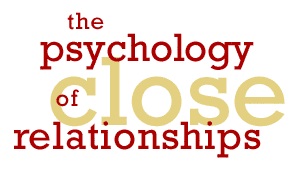  |
  |
 John Harvey
|  John H. Harvey is Professor of Psychology at the University of Iowa. A social psychologist, recipient of many awards and honors, he is the author of numerous articles, chapters, and books. He and I are coauthors of the recommended text for this Web seminar series, Odyssey of the Heart: Close Relationships in the 21st Century. His current work focuses on the sorts of processes that appear to help people deal with issues at various stages of close relationships. Account-making involves the kinds of stories we develop to explain a relationship that has ended. Minding is the process by which we pay attention and try to stay current with the other as a way of maintaining our close relationships. We will be discussing the life stages in relationships in a future session. How do account-making and confiding help us cope with loss? I am sure most of us know the pain of lost love and might find it helpful to know that there are ways of coping that can be helpful, even if they're not "miracle cures." We found that when people lost loved ones, they benefited greatly from developing a story -- an "account" of the relationship -- and confiding about it with close, caring others. By reflecting on the past relationship, and understanding what they had experienced, bereaved individuals were able to learn lessons and to make some sense out of their changed new worlds. By confiding in others, they developed new skills for going on with their lives. Central to these accounts are the explanations people formulate for what has happened that we call attributions. We all make attributions at lightning speed for events in our lives every day, especially for negative and surprising events. For example, if someone does something nice or predictable for you, you aren't likely to question it. But if your partner were suddenly to announce that he or she no longer loves you and is leaving, you'll immediately engage in thoughts and words that ask "Why? Why is this happening?" Accounts tie together such attributional questions and answers with memories, feelings and ideas about the self. A person's entire world is called into question by a relationship loss. The account begins the work of answering these life-shattering questions. What helps maintain a close relationship? Are there skills that people can learn that will help keep their close relationships closer and stronger? Most recently, my colleague Julia Omarzu and I have been studying the process of "minding" close relationships. "Minding" involves knowing your partner and allowing yourself to be known as well. This goals of minding are met through self-disclosing and staying open to regular dialogue about issues and identity: who I am, what I am becoming, what I aspire to be. Both parties must be committed to communicating at a very personal level and to maintaining respect for what they learn about each other. When we mind well, we maintain our CRs, and come to feel increasingly special to our partners. Both processes -- account-making and minding -- require diligence and discipline. Both tasks demand openness and honesty -- the total opposite of avoidance and running from the issues. Relationships unfold over the entirety of our lives. Even if two people deal effectively with some issues in their relationship, there will always be others to work on. Our research findings have taught us that it is inaccurate to seek "closure" in relating -- or in grief. Relationship issues are ongoing and dynamic. Losses are never overcome and finished but rather are organized within the identity. In human nature, we don't "close the book" on anything -- we turn the page. For these reasons, the crisis of September 11 and other tragedies we face can be expected to demand enormous acts of account-making, individually and collectively. Everyone will ask why, and seek to make sense of what are truly incomprehensible losses. Stories will be assembled, memories reconstructed. We see this already in seemingly endless media analysis and replays of the same videotapes of destruction and grief, and the miseries of war. We must also expect a broad-based need to confide and to tell personal stories. Loved ones post photographs and descriptions on impromptu shrines and memorial "walls" near Ground Zero. Rescue workers and firefighters attempt to deal with the stress by recounting what they have seen and commemorating fallen comrades. In all this account-making and confiding, the rest of us need to listen. As some people recover and take up their lives, others will continue unending quests to keep alive the memories of loved ones. We call this step in the grieving process "memorializing." It can take the form of giving back to others, driven by one's own losses. Thus I believe storytelling will be, in the long run, one of the only lasting, effective antidotes to the powerful negative consequences of relationship loss. This is true whether for a single individual's relationship failure or our nation's collective grief over the terrorist disaster. Loss is a fact of life, we cannot escape it; but it is human nature to pursue it, even to embrace it and try to understand it. Each of us makes meaning by constructing and confiding our stories of how closeness has touched our lives. By doing so, we reconfigure our identities, hopes and dreams. |